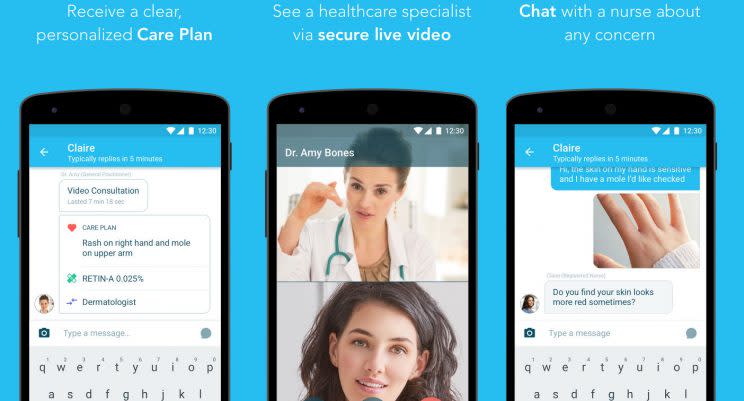This healthcare app aims to save workers a trip to the doctor’s office

Your throat is sore. Your nose is running. You’ve been sitting in the doctor’s office for what feels like hours. You’re worried about the other strange ailments you could catch from the person sitting next to you. And all you wanted to do is to get a prescription to treat your virus.
A Montreal-based tech firm is hoping to minimize these kinds of potentially unnecessary visits to the doctor’s office and cut down on the amount of time that employees are forced to miss work.
Dialogue is an app that connects workers with doctors and nurses through their mobile phone. Employers can subscribe to the service for the cost of about “less than a coffee” for each worker per week.
This gives workers access to Dialogue’s team of doctors and nurses, but also specialists such as dermatologists, psychologists and nutritionists. That means patients can send pictures through instant messaging or talk over video chat, so they can make visual diagnoses. It will also arrange for in-person referrals if necessary.
However, Dialogue’s CEO, Cherif Habib, said more than 60 per cent of all doctor visits can be treated without a physical exam and its team can help treat a range of non-urgent conditions from sinus issues, respiratory infections, allergies, the flu, skin problems and mental health illnesses.
A 2015 study by the Harvard Medical School found that the typical visit to the doctor takes 121 minutes, which breaks down to 37 for travel, 64 for waiting and filing out forms and 20 minutes of face time with a physician.
Habib said Dialogue can help employers can save their workers this time and, in turn, their money.
“Dialogue can optimize productivity by reducing absenteeism and presenteeism related to mental or physical health issues, optimize workforce utilization rates and billable time, “ he said in an emailed statement.
Habib estimated that absenteeism and presenteeism — or working while sick — can cost Canadian businesses 17 days per each employee every year.
In addition to cutting down on visits to the doctor’s office, Dialogue says it can save workers’ time other ways.
It also allows them to get and renew prescriptions through the app, as well as have them delivered to their preferred pharmacy, workplace or home for free within 24 hours.
Dialogue is also offered to the families of employees, which can help save parents time when their children are sick.
Habib said the virtual health platform can also help control more longstanding health costs by assisting employees as they manage chronic conditions and reducing drug claims by funneling all prescriptions through Dialogue.
So far more than 30 companies have signed up for the service and Dialogue recently raised more $4 million in seed money to fund expansion outside Quebec. It is now also available in Ontario.
But Dialogue isn’t the only player on the Canadian mobile health care scene.
Toronto-based Newtopia, which offers genetic testing and personalized coaching as part of customized health care plans, raised $10 million in funding late last year.
TranQool, also based out of Toronto, connects patients to licensed therapists through video chat.
While Akira has developed a similar offering to Dialogue that allows users to talk to doctors through messaging or video chat.
Habib said these types of services are vital in helping many Canadians getting “better access” to care.
“Our health care system is great, but has certain weaknesses when it comes to wait times and access to healthcare,” he said.
“That’s why mobile health platforms are an important development in the healthcare industry.”

 Yahoo Finance
Yahoo Finance 
